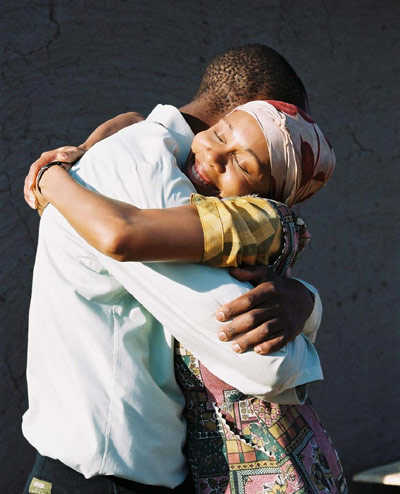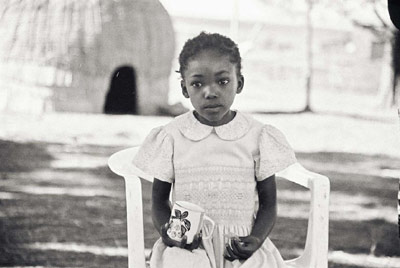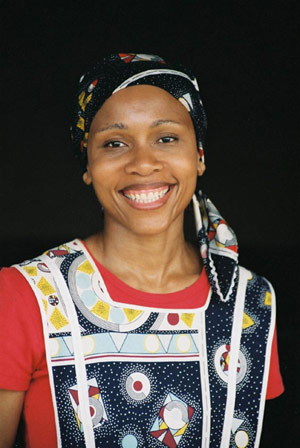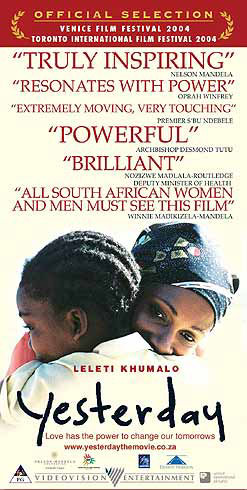| |

|
|
||
| TORONTO, Ont. -- Anant Singh opened his first video store in Durban, South Africa, when it was still illegal for a non-white to own a store in a whites-only area. Mark Bamford and Suzanne Kay moved from Los Angeles to South Africa four years ago to make movies. For many years, their interracial marriage would have been against the law there. Darrel James Roodt started making anti-apartheid films in the early 1980s, when he had to work in secret. His producer was Anant Singh, who used profits from his video stores to back films he could not legally make. Leleti Khumalo, who is 33, spent the first 23 years of her life living under apartheid. Her father died when she was three. Her mother worked as a domestic, raising her four children in a home with a bed as its single piece of furniture. All of these people grew up to become major players in the emerging South African film industry -- which, 10 years after the fall of apartheid and the election of Nelson Mandela as president, is being showcased at this year's Toronto International Film Festival. It's a measure of the maturing South African film scene that there were enough new titles of festival stature to justify the recognition. A few years ago there would have been only one or two, such as "Sarafina!' (1992) and "Cry, the Beloved Country" (1995), both made by the pioneers Singh and Roodt, both starring Leleti Khumalo. |
||||
 |
||||
| I've seen four of the films with South Africa connections, and they are among the best films at Toronto this year. Like Australia in the early 1970s, the nation is finding its voice on the screen. Sometimes that voice expresses pain and courage, as in "Yesterday," starring Khumalo as a Zulu woman who lives in an isolated village while her husband works in the mines of Johannesburg. Sometimes it expresses the joys and sorrows of human nature, as in Bamford and Kay's "Cape of Good Hope," about the everyday lives of Cape Town characters of African, European and Indian descent. Sometimes it explains extraordinary political events, as in Tom Hooper's "Red Dust," which is about the Truth and Reconciliation Commission, which gave amnesty to South Africans willing to tell the truth about crimes they commmitted under apartheid. Sometimes it looks north on the continent, as in Terry George's "Hotel Rwanda," which is about genocide against the Tutsi minority by the ruling Hutu. |
|
|||
 |
||||
|
|
These films express a new freedom for South African cinema, where every single film no longer has to carry the burden of representing the entire nation to the world. "Cape of Good Hope' shows interlocking Cape Town lives not unlike those in the Los Angeles movie "Grand Canyon." "Yesterday" is the first film shot in the Zulu language. "Red Dust" explores a paradox: To be pardoned, the defendants in Truth and Reconciliation hearings had to confess, not deny, their crimes. "Hotel Rwanda" is a glimpse of what might have happened in South Africa if the wounds, injustices and hatreds of the past had been allowed to fester after apartheid fell. The four films are wonderful in different ways. The most universal in its impact is the one that might seem most provincial, "Yesterday." Directed by Roodt, produced by Singh and his associate Helen Spring, it stars Khumalo as Yesterday, a farm woman who raises her daughter, Beauty (Lihle Mvelase) in a Zulu village "in the middle of nowhere." Her husband sends money from his labor in the mines, but is away for months at a time. |
|
||
 |
||||
Yesterday develops a cough, and walks two hours to a rurtal clinic, where the doctor appears on Tuesdays and can't get to most of the patients. When she finally an appointment, Yesterday discovers she is HIV-positive. She has to cope with her illness, with her dying husband, with her little daughter for whom she has such dreams. The movie is about Yesterday's hope and her courage, and it is powerful and moving, conveying information about AIDS in a country where it is widely misunderstood. It was crucial to film in Zulu, Khumalo says, so the message could go where it was most needed. "Yesterday" tells "a simple story," says Singh, "but it is stronger for its simplicity." It's simple not because it is simplified (its emotional complexity runs deep) but because by containing not a single unnecessary shot, word or character, it achieves a kind of purity and universality, like "Bicycle Thief" or "Salaam Bombay" or "Pixote." It will be this year's South African contender for an Oscar nomination.
Written and directed by Darrell Roodt. Print courtesy HBO. Running Time: 96 min. Rated R for pervasive strong violence. |
||||
|
|
|
|


